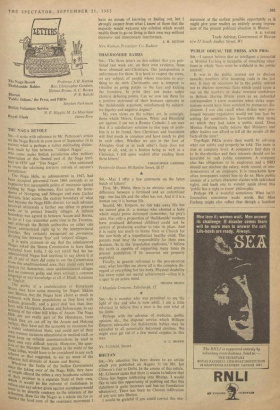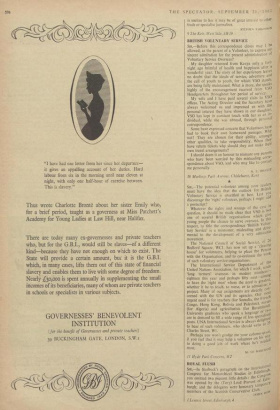`PUBLIC ODIUM,' THE PRESS, AND PROs
Sta,—I cannot believe that so intelligent a journalist as Monica Furlong is incapable of visualising situa- tions in which 'facts. must be withheld in the public interest.'
It was in the public interest not to disclose casualty numbers after bombing raids in the last war. It may on occasions be in the public interest not to disclose economic facts which could cause a run on the markets or shake overseas confidence in Britain. During fifteen years as an industrial correspondent I knew occasions when strike nego- tiations would have been wrecked by premature dis- closures. I can also recall when strikes were pro- longed because negotiators would not lose face by settling for conditions less favourable than terms on which they had taken a public stand. Does Monica Furlong really believe that Ministers and other leaders can afford to tell all the people all the facts all the time?
Top-flight PROs prove their worth by advising what can safely and properly be told. The same is true at company level. A company's first duty is to its shareholders and their interests should not be hazarded by rash public statements. A company also has obligations to its employees and a PRO should not disclose the salary, work record, or mis- demeanours of an employee. It is remarkable how often newspapers expect him to do so. Here public interest of a certain character clashes with individual rights. and leads one to wonder again about this 'public has a right to know' philosophy.
Perhaps PR is wasteful sometimes. What isn't? Journalists sometimes waste words. But Miss Furlong might also reflect that though a handout
is useless to her it may be of great interest to other trade or specialist journalists.
9 The Keir, West Side, SW19
STEP1 if N PARK SSON











































 Previous page
Previous page